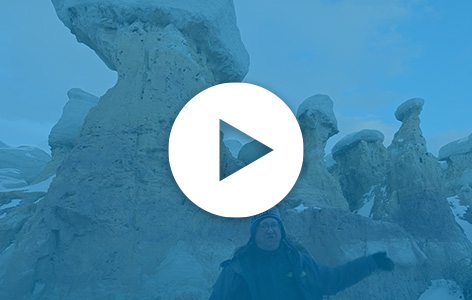
A Unique Workshop
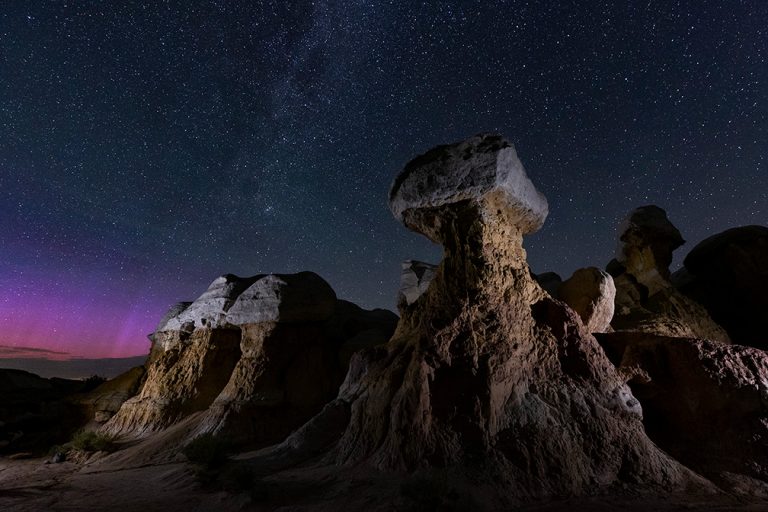
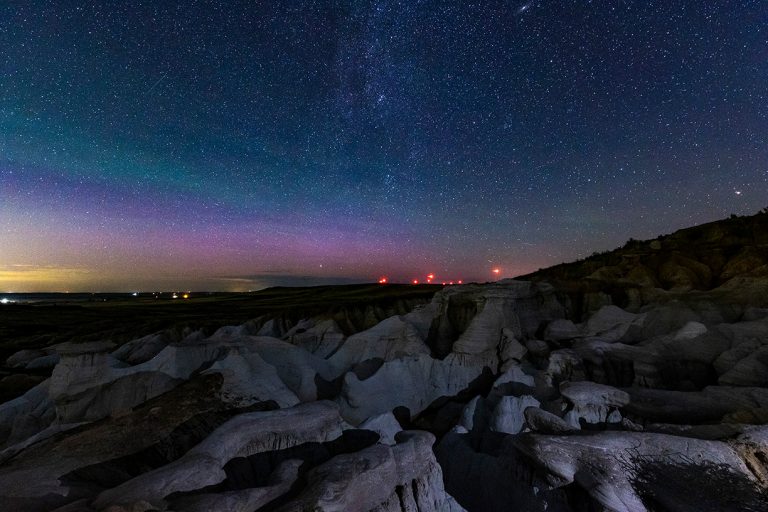
I have more experience than anyone when it comes to photoraphing the Paint Mines at night. I know what to expect during each month of Milky Way season, and I know how to help you get the best compositions.
Visiting the Paint Mines after dark is like stepping onto the surface of another planet. The hoodoos and surreal landscape, combined with the celestial backdrop create an otherworldly experience for night-sky photography. The occasional yelping from a nearby pack of coyotes always puts a smile on my face and is an abrupt reminder that we’re still on planet Earth. A night spent at the Paint Mines is one that you won’t soon forget.
The Paint Mines Interpretive Park is one of El Paso County’s gems, and it’s an excellent place for night photography. Being there after dark requires a permit. I am under contract with El Paso County Parks to conduct these workshops and part of the proceeds are used to support the El Paso County nature centers.
Upcoming 2024 Class Dates
all classes start at 9pm and go all night
Saturday, April 6th
Tuesday, May 7th
Sunday, June 9
Thursday, August 1
Sign-up for a Night-Sky Photography Workshop at the Paint Mines in Calhan, CO
Cost is $300 per person. Part of the proceeds go to benefit El Paso County Nature Centers.
How to Register:
Call Bear Creek Nature Center
Use the El Paso County Parks Website
Click the link to the right and expand the Special Events section to choose a date.
Sign Waiver and Release Before Workshop
Sign-up for Night-Sky Photography Workshop at Paint Mines in Calhan, CO
Paint Mines Interpretive Park
A unique place to capture beautiful astrophotography
The Paint Mines are located about 45 minutes northeast of Colorado Springs in Calhan, CO. The park is known for its hoodoos and the colorful pigments that were used by indigenous people to make paint. The area of the park that contains the largest hoodoos offers the best opportunities for photographing the night sky.

Workshop Topics
How to photograph the Milky Way and the stars as points of light.

How to photograph star trails

Light painting techniques (lights will be supplied).
Tracking techniques using the Move Shoot Move and StarAdventurer trackers

Stacking techniques to reduce noise
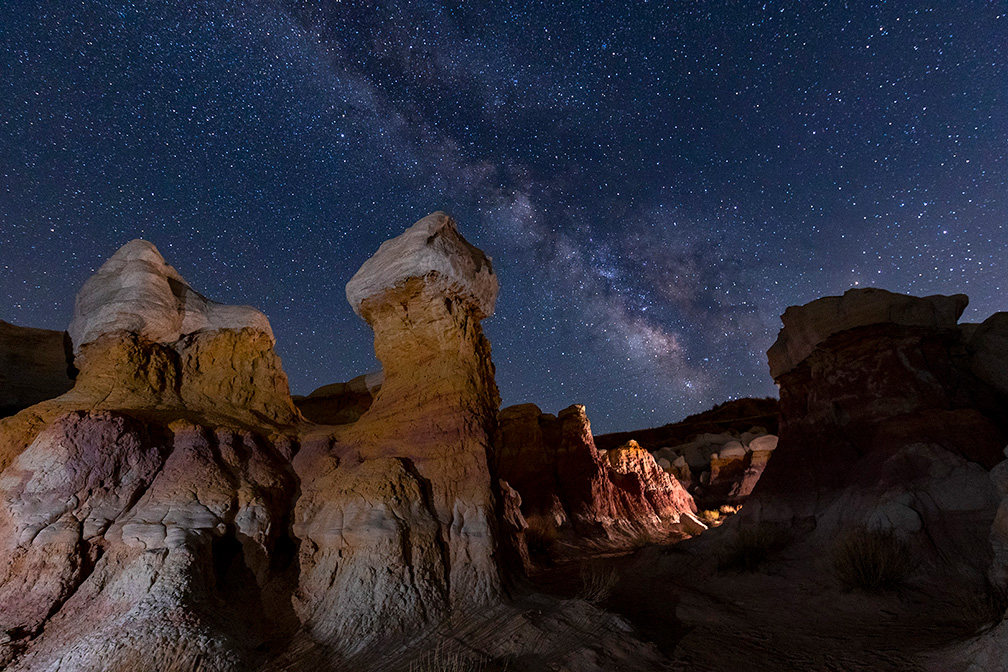
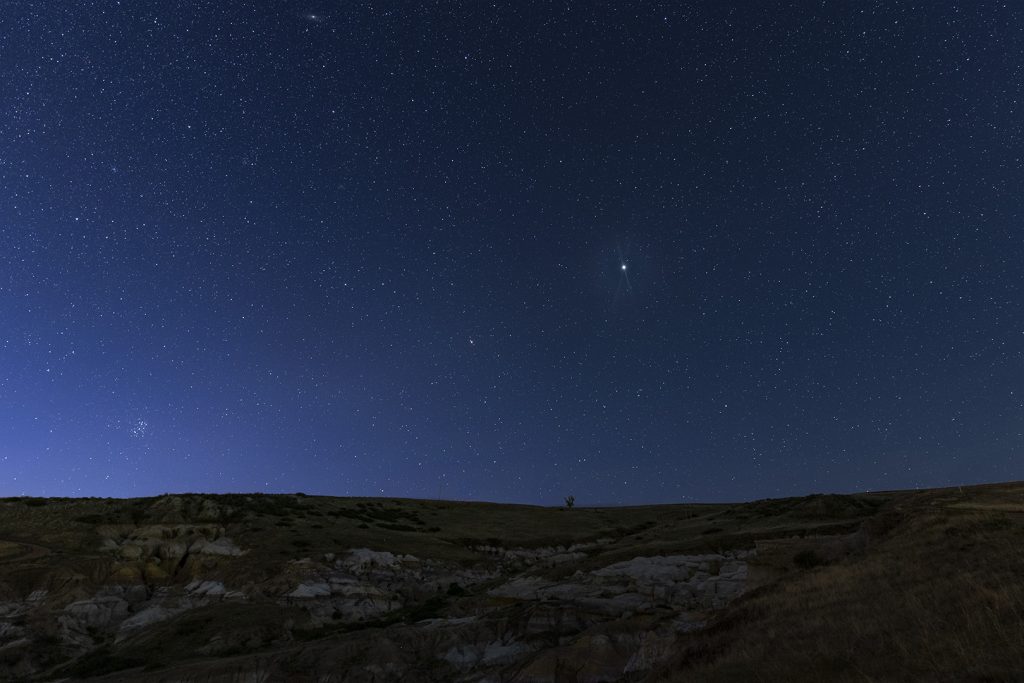
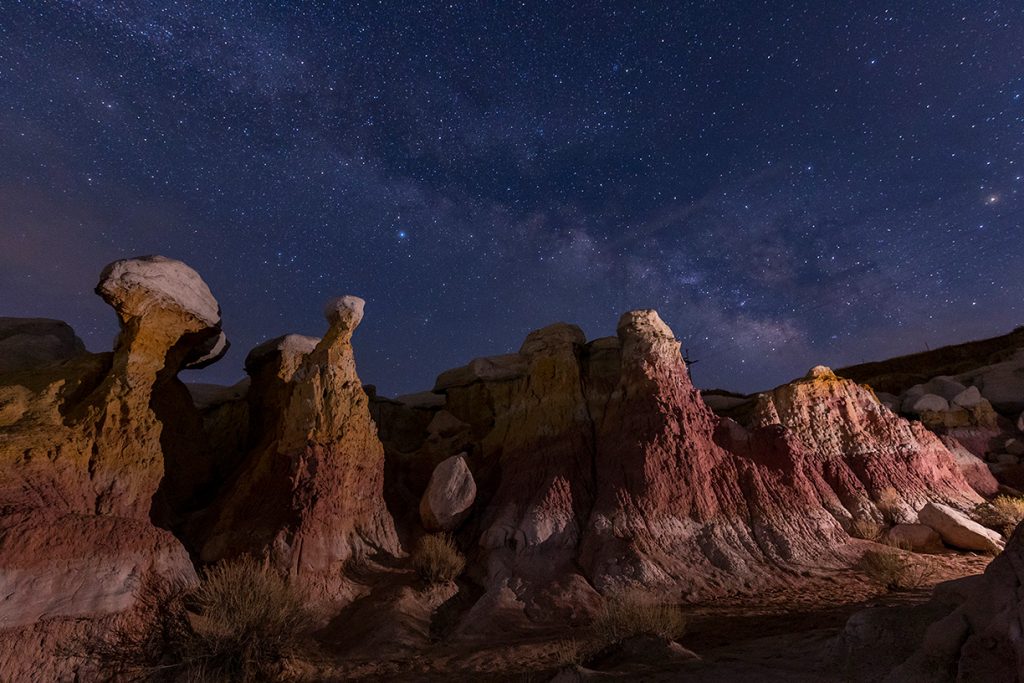
A Beautiful Hike
A fifteen minute hike into the hoodoos
We need to hike into the park to reach the hoodoos, which means that you will have to carry all of your gear with you, including your camera, lenses, tripod, water, food, snacks and warm clothes. It is important that you are physcially able to hike over rough terrain in order to participate in the workshop and get the most out of this experience.
The Workshop
Learn astrophotography in a beautiful alien landscape
Prior to class students will be emailed informational videos.
The tentative schedule for each workshop is as follows:
We will meet at the main entrance to the park next to the restrooms about 9 pm, and then move to the second parking lot after a brief instruction session. If conditions are right and time permits, we’ll spend some time capturing some images from the overlook, which offers great views of the park, especially under moonlight. We’ll hike down into the park and photograph the night sky among the hoodoos. The hike into the park to the area with the largest hoodoos is approximately ½ a mile. The plan is to stick around to photograph the sunrise, but you are not required to stay the entire night. We also have access to a farmhouse close by that we can visit if the group would like to do so.
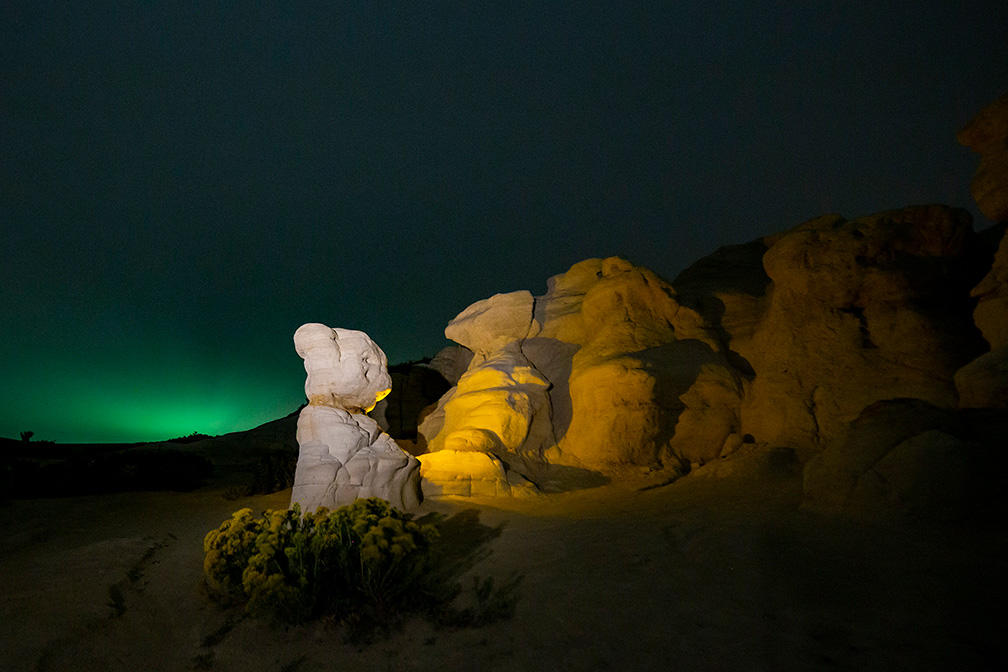
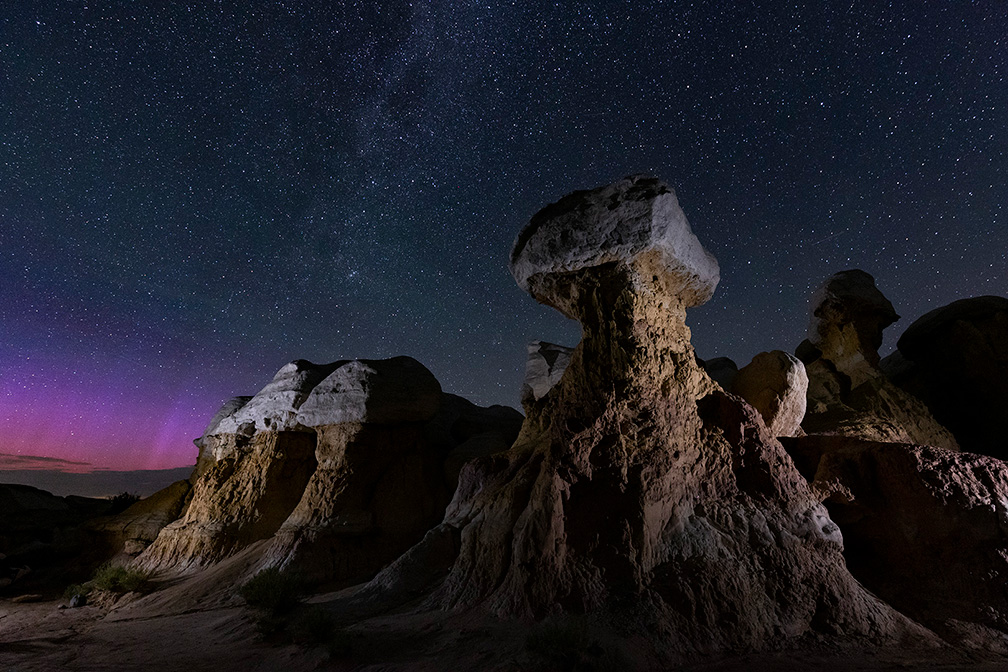
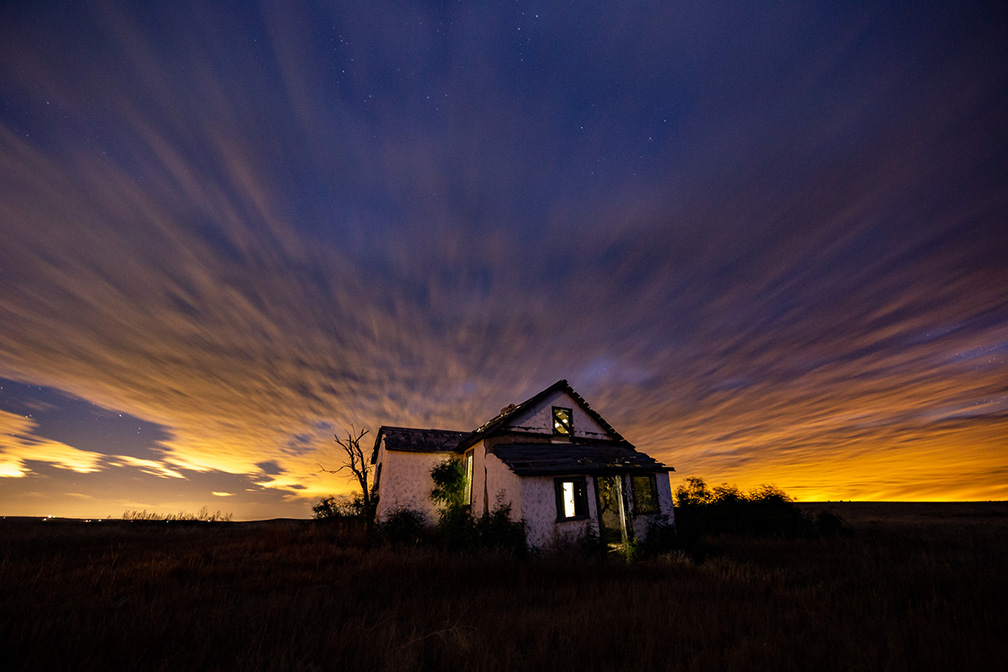
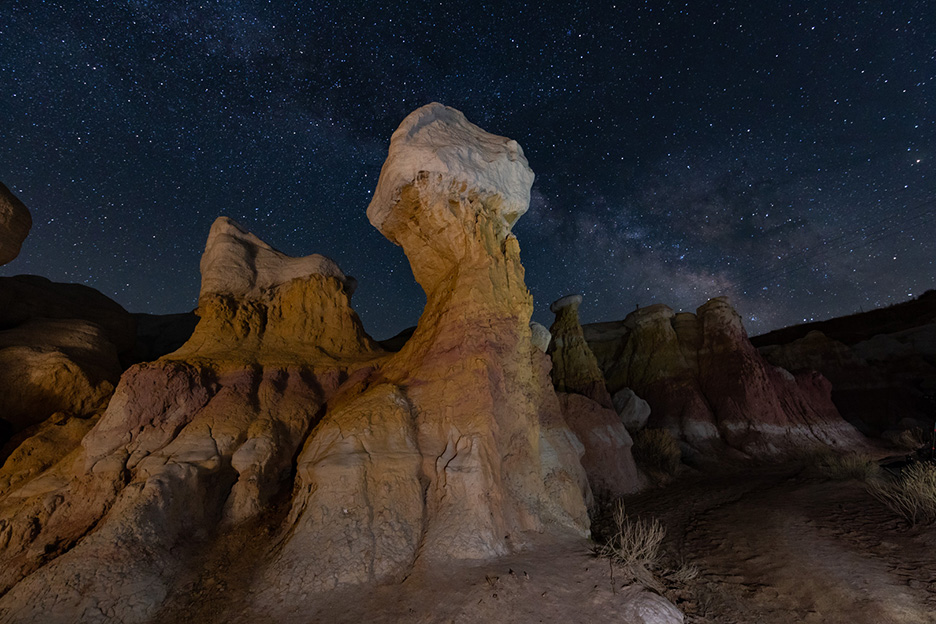
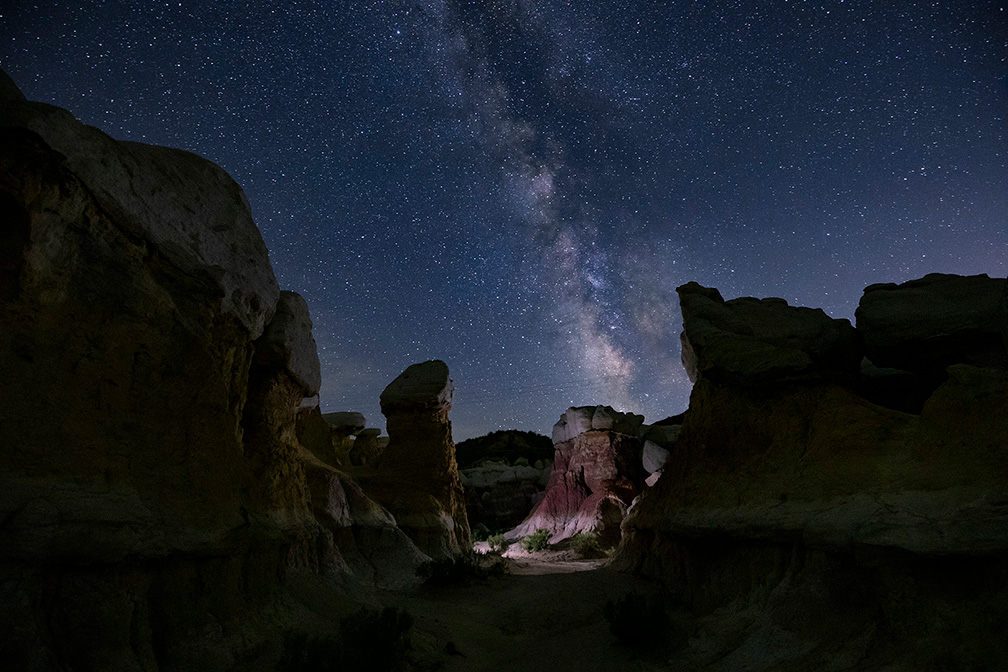

What to Bring
Camera Gear
You should be familiar with your camera gear and have the knowledge to adjust your aperture, shutter speed, ISO, white balance, etc. while in manual mode. You should know how to switch from auto to manual focus and view the histogram on your LCD screen. We recommend that you familiarize yourself with all of your equipment before attending a workshop and suggest that you practice operating your camera in the dark so that you get a feel for where the buttons and dials are located.
Camera – your camera should be capable of shooting at 6400 ISO in order to get photos of the Milky Way and stars as points of light.
Camera manual
Extra batteries for your camera and other battery-operated devices
STURDY tripod! – A $20 Wal-Mart special will not be adequate
Remote or Intervelometer – A remote with a locking shutter or a way to set a bulb timer is necessary for exposures longer than 30 seconds.
Lenses – Lenses in the 14-24mm range will produce good results for the night sky. You will need a lens that opens to f/2.8 or larger in order to photograph the stars as points of light. Bring other lenses for sunset, sunrise and wildlife photos.
Other Important Gear
Warm clothes – It’s best to dress in layers with insulating layers close to your body. Windproof jackets and pants are recommended to keep you warm in windy conditions. Watch the video below to learn how to dress in layers. Not dressing properly is one of the biggest issues I come across with my workshop students, especially those who live in warm locations like Texas and Florida.
- Watch our video on wearing layers
Gloves and a winter hat – It’s not unusual for temperatures to drop down into the 30’s and 40’s at high elevations during the summer months. Having these items will help keep you comfortable throughout the night.
Sturdy boots or hiking shoes
Rain gear – A lightweight poncho will do fine as well as a waterproof parka and waterproof pants.
Headlamp/Flashlight
Water – It’s important to stay hydrated at high altitudes
Snacks
Thermos for coffee or tea
Lightweight camping chair

Important Information
Weather & Safety
We’ll keep an eye on the weather, but we don’t have any control over Mother Nature. If the sky is cloudy, we will spend time photographing practicing light painting techniques.
All attendees must sign a waiver and release agreement to participate in these workshops.
Food
We will not be serving food so please bring snacks to eat throughout the night.
Refunds
Refunds are not given unless the workshop is cancelled.

Need Extra Help?
Do you think you’ll need extra help to prepare for the workshop? If so, you can hire Mike for a one- or two-hour Zoom session to brush up on your camera skills or discuss your equipment needs. Message Mike to make arrangements for a pre-workshop session.

